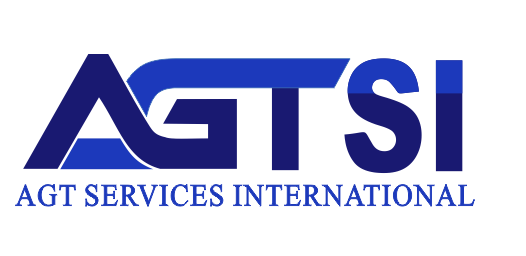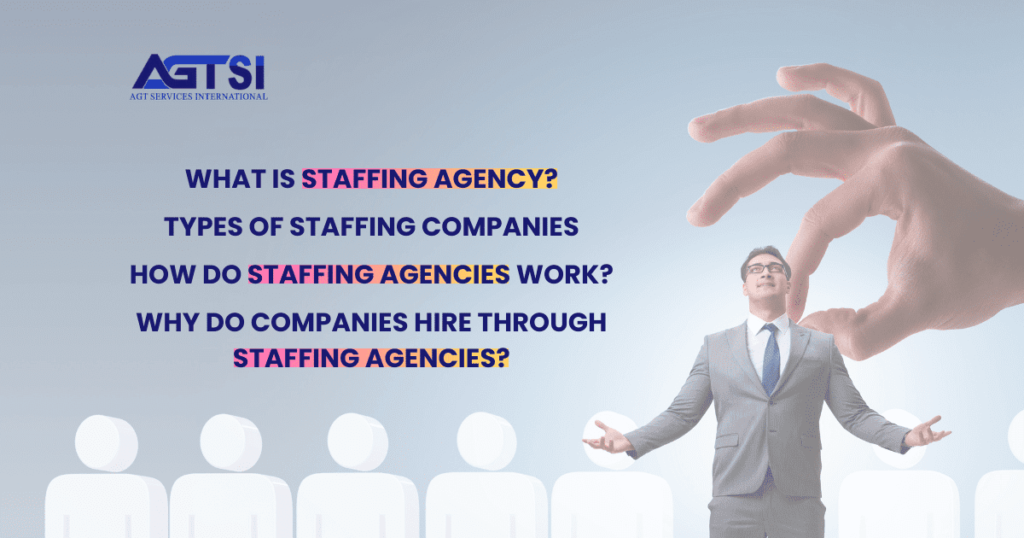In the realm of human resources, the terms “Recruiting vs Staffing” are often used similarly, yet users assume different meanings and processes. This article aims to explain the differences between staffing and recruiting, providing valuable insights for businesses and professionals navigating the hiring landscape.
Recruiting vs Staffing
| Aspect | Recruiting | Staffing |
| Definition | Involves attracting, assessing, and hiring candidates for permanent or long-term positions within an organization. | Involves supplying temporary or contract employees to meet short-term needs or fluctuations in workforce demand. |
| Focus | Permanent or long-term positions | Temporary, contract, or short-term positions |
| Goal | Find the right fit for the job within the organization | Provide quick and flexible solutions for workforce needs |
| Process | Strategic and comprehensive | Emphasizes speed and flexibility |
| Candidate Assessment | Thorough evaluation including multiple interviews, background checks, and assessments | Less rigorous assessment, often with a pool of pre-screened candidates |
| Client Relationship | Long-term strategic partnership | Short-term client relationships for immediate needs |
| Timeframe | Slower turnaround, more thorough process | Quick turnaround, often with pre-screened candidates |
| Administrative Tasks | Limited to the recruitment process | Handles administrative tasks like payroll, taxes, benefits |
| Industry Range | Often specialized in specific industries or roles | Broad industry range or specific to an industry |
| Suitable For | Specialized, senior-level, niche roles | Seasonal work, project-based, temp-to-hire |
| Key Benefits | Aligns candidates with organizational goals and culture | Provides immediate solutions for workforce needs |
| Example | Hiring executives, managers, specialists | Filling temporary or contract positions, covering employee absences |
| Duration | Typically permanent or long-term positions | Temporary, short-term, or contractual |
What is Staffing?
Staffing encompasses the process of fulfilling a company’s short-term or temporary workforce needs. Staffing can include hiring seasonal workers, covering employee wants, or addressing specific project requirements. The primary focus in staffing lies in skill and flexibility, allowing companies to quickly adapt to unstable demands without committing to long-term employment contracts.
What are the Functions of a Staffing Agency?
Staffing agencies play an important role in the modern job market by connecting job seekers with employers and facilitating the hiring process. Staffing agency’s functions encompass a wide range of activities aimed at fulfilling the workforce needs of businesses efficiently. Here are the key tasks of a staffing agency:
1. Recruitment and Sourcing
Staffing agencies actively recruit candidates through various channels such as job boards, social media, networking events, and their own candidate databases. Staffing agencies source candidates based on the specific requirements provided by client companies, including skills, experience, qualifications, and cultural fit.
Recommended: 21 Best Free Candidate Sourcing Tools for Recruiters
Recommended: 20 Recruiting Ideas Outside the Box
2. Screening and Pre-Evaluation
Once candidates apply or are sourced, staffing agencies conduct initial screenings and pre-evaluations to assess job seekers’ suitability for the job positions. Preliminary assessment may involve reviewing resumes, conducting interviews, checking references, and evaluating skills and competencies.
3. Skill Matching
Staffing agencies match candidates’ skills, qualifications, and experience with the job requirements specified by client companies. Staffing agencies ensure that candidates are well-suited for the roles staffing firms are being considered for, increasing the likelihood of successful placements.
4. Temporary and Contract Staffing
One of the primary functions of staffing agencies is to provide temporary and contract employees to client companies. Staffing companies manage short-term workforce needs, such as seasonal fluctuations, project-based work, or covering employee absences.
5. Permanent Placement
In addition to temporary staffing, staffing agencies also assist in permanent placements. These firms identify candidates for full-time positions within client organizations, ensuring a thorough evaluation process to find the right fit for long-term employment.
6. Candidate Training and Development
Some staffing agencies offer training and development programs to improve candidates’ skills and employability. Employee development can include job readiness workshops, technical training, and soft skills development to prepare candidates for specific roles.
7. Administrative Support
Staffing firms frequently manage employment-related administrative duties, encompassing tasks like processing payroll, administering benefits, withholding taxes, and ensuring compliance with labor regulations. Office assistance helps with administrative burdens for client companies, especially in temporary staffing arrangements.
8. Client Relationship
Management: Staffing agencies maintain relationships with client companies to understand their evolving workforce needs, company culture, and strategic goals. Staffing firms provide personalized services and adapt their recruitment strategies to meet the unique requirements of each client.
9. Onboarding and Integration
Upon successful placements, staffing agencies may assist with the onboarding process, ensuring smooth integration of new hires into client organizations. Staffing Companies includes orientation sessions, introductions to company policies, and support during the initial transition period.
10. Performance Monitoring and Feedback
Staffing agencies may monitor the performance of placed candidates and gather feedback from client companies to assess satisfaction levels and address any issues or concerns promptly. This continuous feedback loop helps improve the quality of future placements.
What is Recruiting?
Recruiting, on the other hand, pertains to the strategic process of attracting, evaluating, and hiring individuals for permanent or long-term positions within an organization. This involves a deeper understanding of the company’s goals, culture, and specific job requirements to ensure alignment between candidates and organizational objectives.
What Are the Responsibilities of a Recruitment Agency?
Recruitment agencies play a key role in the job market by connecting talented individuals with job opportunities and helping employers in finding the right candidates for their organizations. The responsibilities of a recruitment agency are multifaceted and encompass a wide range of tasks aimed at facilitating successful placements. Here are the key responsibilities of a recruitment agency:
1. Understanding Client Requirements
A recruitment agency’s primary responsibility is to understand the hiring needs and requirements of client companies. Analyzing client demands involves conducting consultations with employers to gather information about job roles, responsibilities, qualifications, experience levels, cultural fit, and other essential criteria for potential candidates.
2. Job Advertisement and Promotion
Recruitment agencies advertise job vacancies on behalf of their client companies. Hiring firms create clear job descriptions and use various advertising channels such as job boards, social media platforms, industry networks, and their own website to promote job openings and attract a diverse pool of qualified candidates.
3. Candidate Sourcing and Screening
One of the core responsibilities of a recruitment agency is to source candidates who match the requirements specified by clients. Recruitment firms employ various sourcing methods, including database searches, networking, referrals, direct outreach, and digital recruiting tools. After sourcing candidates, agencies conduct thorough screenings, including resume reviews, skills assessments, and initial interviews to evaluate candidates’ suitability for specific roles.
4. Candidate Assessment and Evaluation
Recruitment agencies assess candidates based on a range of factors, such as qualifications, experience, skills, personality traits, career goals, and cultural fit with client organizations. Hiring firms use behavioral interviews, competency-based assessments, technical evaluations, and psychometric tests to gauge candidates’ capabilities and potential contributions to client companies.
5. Interview Coordination
Recruitment agencies coordinate and schedule interviews between candidates and client companies. Recruitment companies facilitate the interview process, provide guidance and preparation tips to candidates, and ensure smooth communication and logistical arrangements for both parties involved.
6. Candidate Presentation
Upon identifying suitable candidates, recruitment agencies present shortlisted candidates to client companies for further evaluation. Recruitment firms prepare complete candidate profiles, including resumes, cover letters, interview feedback, and assessment results, highlighting candidates’ strengths and qualifications relevant to the job requirements.
7. Feedback Collection
After interviews and candidate assessments, recruitment agencies collect feedback from both clients and candidates. Recruitment gathers insights on candidate performance, interview experience, skill match, cultural fit, and overall impressions to refine their selection process and improve candidate-client alignment.
8. Negotiation and Offer Management
Recruitment agencies assist in negotiating job offers, salary packages, benefits, and employment terms between clients and selected candidates. Hiring firms facilitate transparent communication, address concerns or questions, and ensure mutual agreement on contractual terms to finalize job placements successfully.
9. Onboarding Support
Some recruitment agencies provide onboarding support to candidates who accept job offers. Hiring firms guide candidates through the onboarding process, help them transition into their new roles, provide orientation materials, and facilitate introductions to key stakeholders within client organizations.
10. Post-Placement Follow-Up
Recruitment agencies conduct post-placement follow-ups to monitor candidates’ integration into client companies and gather feedback on their performance and job satisfaction. Recruitment companies maintain ongoing relationships with clients and candidates to address any concerns, provide ongoing support, and foster long-term partnerships.
Staffing VS Recruiting: Final Thoughts
In conclusion, navigating the recruiting vs staffing landscape requires a fine understanding of the differences between these processes. While staffing offers quick and flexible solutions for short-term needs, recruiting focuses on strategic long-term staffing goals. By using the best practices and expertise of industry leaders, businesses can optimize their workforce management strategies and achieve sustainable growth.
Is staffing the same as recruiting?
While related, staffing and recruiting serve distinct functions. Staffing addresses short-term or temporary workforce needs, while recruiting focuses on permanent or long-term staffing requirements.
Can businesses benefit from both staffing and recruiting services?
Yes, leveraging both staffing and recruiting services can provide businesses with comprehensive solutions to address immediate and long-term workforce needs effectively.
How do staffing agencies and recruitment firms differ?
Staffing agencies specialize in temporary or contract workforce solutions, whereas recruitment firms focus on strategic long-term hiring for permanent positions.
What is the role of staffing and recruiting in HR?
Staffing and recruiting are integral functions within human resources (HR), with staffing focusing on short-term needs and recruiting on long-term strategic hiring.



















